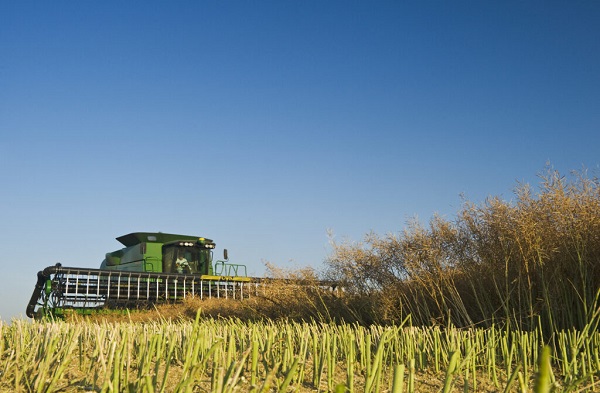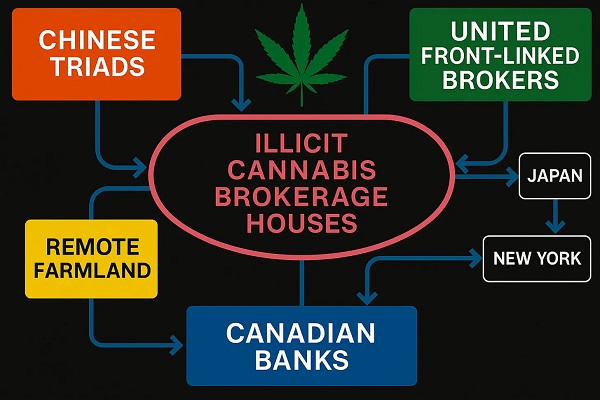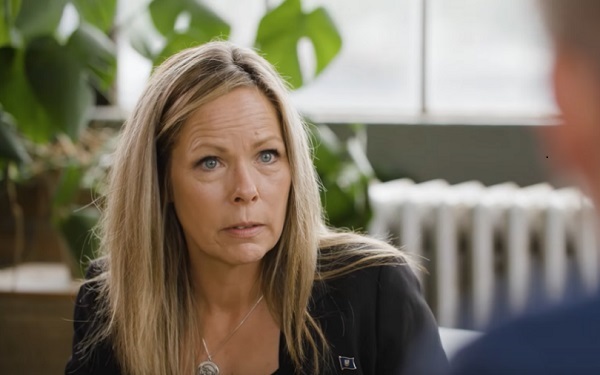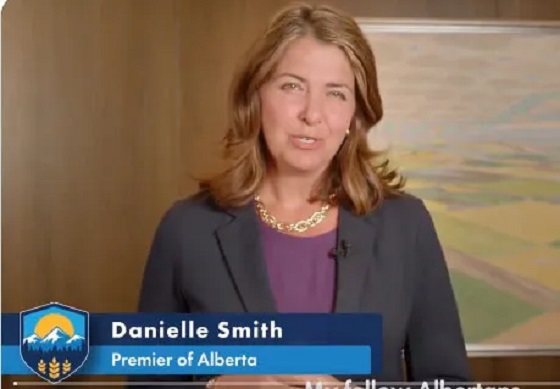Alberta
Premier Danielle Smith’s first budget adds health and education spending and forecasts a $2.4 billion surplus
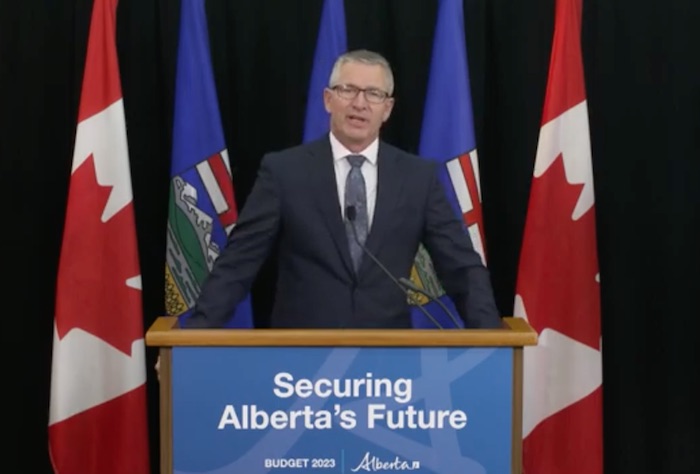
Budget 2023 forecasts a surplus of $2.4 billion in 2023-24 and reflects the government decisions to invest in Alberta’s future and provide security for Alberta families and communities.
“Fiscal responsibility matters. It’s been key to achieving our strong fiscal standing and will be essential for sustainable program delivery in the future. In Budget 2023, we continue our commitment to paying down debt all while continuing to position our economy for growth and invest in the top priorities of Albertans.”
Growing jobs and the economy
Budget 2023 advances the province’s already successful Alberta at Work initiative, investing a further $176 million in 2025-26 to help Albertans build their skills and find jobs, and assisting employers in their search for workers in existing and emerging sectors.
A $111-million increase over three years will add seats to expand enrolment in areas with the highest student demand, including non-trade construction, energy, technology and business. Alberta’s government is committed to removing barriers in order to attract highliy skilled professionals and job-creating entrepreneurs to Alberta.
Investments in aviation and aerospace, agri-food manufacturing and $24.5 million this fiscal year to the Alberta Technology and Innovation Strategy will enhance emerging and innovative technologies, drive economic diversification and attract even more venture capital investments to build on successive record-breaking years. A $54-million per year increase in funding for the Alberta Petrochemicals Incentive Program starting in 2025-26 will support Air Products’ clean hydrogen facility – and continue to make Alberta a global leader in petrochemical production, bring long-term investments and create thousands of construction jobs.
Transforming health care to meet Albertans’ needs
Alberta’s government is setting a new record for spending in health care this year by committing an additional $965 million in operating expense in 2023-24 for the Ministry of Health to continue to build a stronger health-care system for Albertans. This funding will ensure the government can take the urgent action needed to improve ambulance response times, decrease emergency room wait times, reduce wait times for surgeries and attract more front-line health workers to deliver the care patients expect and deserve.
Budget 2023 includes $158 million this year to attract, recruit and train more doctors and nurses to work across the province, with a focus on family physicians for rural areas. Alberta’s primary health-care system is being strengthened and modernized with a record $2 billion over three years. Another $196 million over three years will strengthen emergency medical services and $3.1 billion over three years will modernize and expand health facilities across Alberta, including the Red Deer Regional Hospital and expanding capacity for operating rooms in 15 communities to complete more of the surgeries Albertans are waiting for. An additional $529 million in capital maintenance and renewal funding will be used to keep facilities operational and a further $732 million in self-financed investment will add to health infrastructure.
Supporting Albertans, students and families
With $2.3 billion in affordability measures in 2023-24, $1.5 billion in 2024-25 and another $1.8 billion in 2025-26, Alberta’s government is keeping more money in the pockets of Albertans and continues to provide a helping hand to those in need. New relief measures will save post-secondary students about $18 million each year with lower interest rates for student loans. Adoptive families will have access to more subsidies and tax breaks to make adoption more feasible. Workers in the social services sector will see their wages increased by 10 per cent, so they can continue to provide compassionate services to people with complex needs, those experiencing homelessness or family violence. Albertans will also receive a larger tax credit when they donate to their favourite charities to lend a helping hand.
An increase of $1.8 billion for education will help Alberta’s young people succeed and thrive in smaller classes. This increase will support the hiring of up to 3,000 education staff, including teachers, educational assistants, bus drivers and school support staff to give students the focused time and attention they need to succeed in their studies.
The government is also investing $59.3 million in 2023-24 to create thousands more licensed child-care spaces as part of opening a total of 68,700 new spaces by the end of March 2023, increasing access and choice so parents can go to school, work and participate in the economy. Affordability grants to child-care operators and subsidies for parents will further lower the cost of child care, with the Alberta federal-provincial child-care agreement already reducing fees by an average of 50 per cent in 2022 for young children.
Keeping Albertans and communities safe
All Albertans, families and children have the right to safety and security in their homes, at school, at work and in their communities, no matter where they live.
Budget 2023 keeps communities safe by increasing collaboration between first responders and community partners and increasing access for vulnerable populations to recovery-oriented mental health and addiction supports and services.
- $12.5 million in 2023-24 will support the expansion of therapeutic living units within provincial correctional facilities to help inmates access recovery-oriented treatment and recovery programs. This is a joint investment between Mental Health and Addiction and Public Safety and Emergency Services.
- $65 million over the next three years will strengthen First Nations policing to address the unique needs of their communities and members. This will secure new policing positions and the creation of another First Nations police service in addition to the Lakeshore Regional Police Service, the Blood Tribe Police Service and Tsuut’ina Nation Police Service.
- $20 million over three years is committed to combat human trafficking and ensure necessary resources are provided to survivors and victims.
The province will review options for delivering policing services with the objective of improving the safety and security of Albertans and their property.
Committing to responsible fiscal management
Budget 2023 secures Alberta’s future by staying true to responsible fiscal management and spending hard-earned tax dollars wisely to support Albertans today and tomorrow.
A new fiscal framework would require all future Alberta governments to balance their annual budgets, with certain exceptions, and use any surpluses to first pay down debt and save for the future before investing in one-time initiatives.
Taxpayer-supported debt is being reduced by $14.8 billion between 2021-22 and 2023-24, and the Alberta Heritage Savings Trust Fund is growing by $5.7 billion between 2021-22 and 2025-26. This will bring taxpayer-supported debt to $78.3 billion at the end of 2023-24, and saves Albertans estimated $260 million in this fiscal year and $551 million in 2023-24.
Mandating balanced budgets and tying operating expense increases to population growth and inflation would help control spending to prevent what could be temporarily high resource revenue being used to increase spending in an unsustainable way. Spending decisions instead would be focused on not only meeting the needs and priorities of Albertans but also on continuing to drive change, innovation and improvement of vital services and programs.
Revenue
- In 2023-24, total revenue is estimated to be $70.7 billion, which is $5.4 billion lower than the forecast for 2022-23. Commodity prices are expected to soften due to fears of a looming global recession, while investment income is expected to recover well after dropping in 2022-23.
- Revenue is expected to remain above $70 billion in following years. The revenue forecast for 2024-25 is $71.7 billion and for 2025-26 is $72.6 billion.
- In 2023-24, corporate income tax revenue is estimated at $5.9 billion, down 7.8 per cent from 2022-23, largely due to declining commodity prices.
- Non-renewable resource revenue is estimated to be $18.4 billion in 2023-24, down from the highest-ever resource revenue of $27.5 billion forecast in 2022-23.
Expense
- Total expense in 2023-24 is $68.3 billion, which is $2.6 billion more than the forecast for 2022-23.
- Total expense is expected to be $69.7 billion in 2024-25 and $71.2 billion in 2025-26.
Surplus
- A surplus of $2.4 billion is forecast for 2023-24 compared with $10.4 billion in 2022-23.
- Surpluses of $2 billion and $1.4 billion are forecast for 2024-25 and 2025-26, respectively.
Economic outlook
- In 2022, real gross domestic product (GDP) rose by an estimated 4.8 per cent, which is lower than the budget forecast of 5.4 per cent. The softer growth reflects the impact of higher interest rates and prices on consumer spending and residential investment. Even so, real GDP fully recovered from the COVID-19 downturn and surpassed the 2014 peak in 2022.
- In 2023, real GDP is expected to grow by 2.8 per cent, up slightly from the 2.7 per cent growth forecast at mid-year.
Energy and economic assumptions, 2023-24
- West Texas Intermediate oil (USD/bbl) $79.00
- Western Canadian Select @ Hardisty (CND/bbl) $78.00
- Light-heavy differential (USD/bbl) $19.50
- Natural gas (CND/GJ) $4.10
- Convention crude production (000s barrels/day) 497
- Raw bitumen production (000s barrels/day) 3,345
- Canadian dollar exchange rate (USD/CDN) $76.20
- Interest rate (10-year Canada bonds, per cent) 3.60
Budget 2023 secures Alberta’s bright future by transforming the health-care system to meet people’s needs, supporting Albertans with the high cost of living, keeping our communities safe and driving the economy with more jobs, quality education and continued diversification.
Alberta
Alberta teachers to vote on tentative agreement with province

President of Treasury Board and Minister of Finance Nate Horner issued the following statement about the ongoing negotiations with TEBA and the ATA:
“Last Friday, the Alberta Teachers’ Association (ATA) made an offer to the Teachers’ Employer Bargaining Association (TEBA). Both parties have agreed to form a tentative agreement based on shared priorities and members will vote on the tentative agreement in the coming days.
“My thanks to both parties for their work in developing a tentative agreement that reflects elements that are good for teachers and the education system, as a whole.
“Alberta’s government is investing nearly $10 billion, the largest investment in the province’s history, to support the province’s teachers and students. On top of that, we’re putting $8.6 billion into building and renovating over 130 schools so students have safe, modern spaces to learn. Alberta’s government has also committed to hiring 3,000 additional teachers to reduce class sizes and support student learning.
“If ratified, this deal will form the basis for labour stability in the province and will be a positive path forward for a successful school year for our kids. Out of respect for the ratification process, I won’t get into the specifics of the deal, but I will say the tentative agreement is strong on classroom investment.
“At this time, both TEBA and I have no further comments.”
Alberta
Alberta pro-lifers demand protections for infants born alive after failed abortions
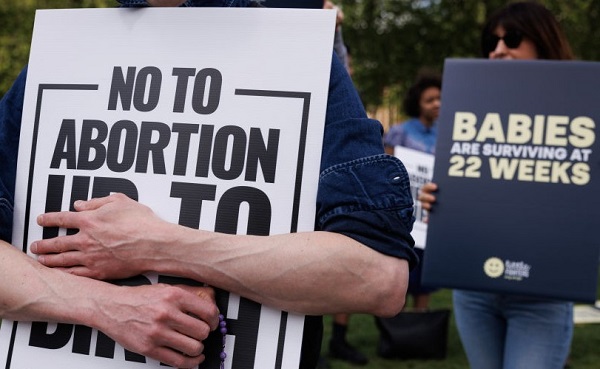
From LifeSiteNews
Prolife Alberta’s ‘Left to Die’ campaign demands protections for the hundreds of babies born alive after failed abortions, urging policy changes to ensure they receive medical care.
Prolife Alberta has launched a campaign to demand protections for children born alive after failed abortions.
The organization announced a new initiative titled “Left to Die,” which seeks to expose Alberta’s current policy that leaves babies born alive after botched abortions to die without care.
“LeftToDie.ca shines a light on a tragedy most Albertans don’t even know is happening: babies being born alive after failed abortions and left to die without care,” a Prolife Alberta spokesperson told LifeSiteNews.
“Using official government data, we are exposing this hidden reality and mobilizing grassroots citizens to press Alberta’s elected officials to act,” the spokesperson continued. “Our goal is to see AHS policies revised so this practice can no longer continue, and to establish clear protections ensuring that every child born alive — no matter the circumstances — receives the same right to medical care and comfort as any other newborn.”
According to official data from the Canadian Institute for Health Information (CIHI), which is the federal agency in charge of reporting the nation’s health data, in 2023-2024, there were a staggering 133 late-term abortions in Alberta. Of these, 28 babies were born alive after the abortion and left to die.
This fact was recently exposed in an opinion piece published by the Western Standard from Richard Dur, who serves as the executive director of Prolife Alberta.
However, so far, Alberta officially has failed to introduce legislation to protect babies born alive after abortions despite knowing about the situation.
As Prolife Alberta pointed out, “twenty-five years ago, as a columnist for the Calgary Herald, Danielle Smith exposed the horror of babies being born alive after failed abortions and left to die – a ‘horrific practice,’ in her own words.”
“Today, as Premier of Alberta, she is in a position not just to write about this injustice — but to end it,” the organization explained. “Every day adds to 25 years of silence since that article was published. Her silence — and that of her government — sustains the policy.”
The new campaign encourages Albertans to educate themselves regarding the situation and to share this information and the campaign with their family and friends. Albertans are also advised to contact their local MLA through the new website and to urge them to support protections for babies born alive.
“Regardless of where one stands on abortion, life after birth should matter to all of us,” Prolife Alberta told LifeSiteNews. “To deny a living child even the most basic medical care — merely because of the circumstances of their birth — is a profound moral failure.”
“These human beings have survived an attempt on their life in the womb, only to be abandoned to death outside it,” the organization continued. “Revising health policies that permit this would not regulate or restrict abortion in any way, but it could save a newborn child’s life.”
As reported by LifeSiteNews recently, 150 babies were born after botched abortions in 2023-2024 in Canada. However, it’s not known how many survived.
Similarly, reports from 2018 have indicated that 766 babies were born alive after late-term abortions in Canada between 2013 and 2018 and presumably left to die.
-

 Alberta20 hours ago
Alberta20 hours agoAlberta teachers to vote on tentative agreement with province
-
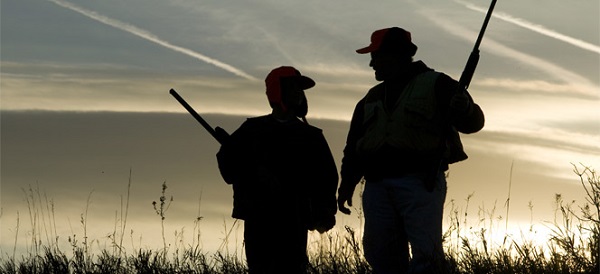
 Business1 day ago
Business1 day agoTaxpayers: Stop wasting money and scrap the gun ban
-

 Alberta1 day ago
Alberta1 day agoAlberta pro-lifers demand protections for infants born alive after failed abortions
-

 Business2 days ago
Business2 days agoWEF has a plan to overhaul the global financial system by monetizing nature
-

 Crime2 days ago
Crime2 days ago1 dead, 2 injured after shooting at Dallas ICE facility
-

 espionage2 days ago
espionage2 days ago24 years later: Tucker Carlson releases interview with retired CIA agent claiming the CIA KNEW 9/11 was coming
-

 Daily Caller2 days ago
Daily Caller2 days agoTrump’s Ultimatum To Europe On Russian Oil
-
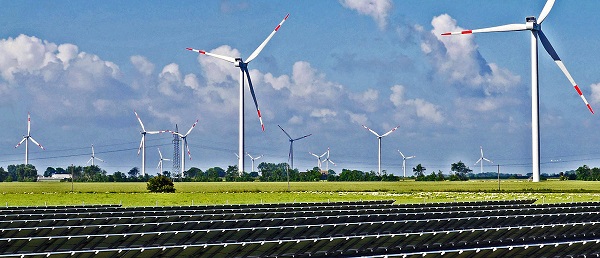
 Energy2 days ago
Energy2 days agoBig Tech’s ‘Misleading’ Green Energy Claims May Plunge Nation Into Blackouts, AGs Warn
